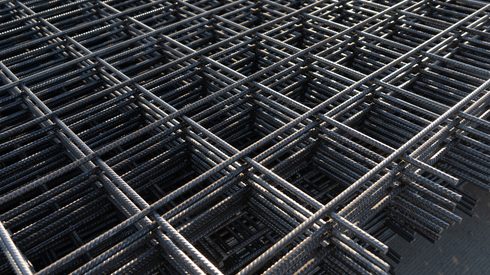India monsoon season approaching
In India, market sources do not expect any strong uptick in demand ahead of the monsoon season starting in the June-July period.
“The monsoon season is coming, and there shouldn’t be any strong demand then,” a trader source in India told Fastmarkets this week.
The Southwest Monsoon covered India on July 2 last year, with the rains sweeping in from the south from May 22 onward, before retreating southward from September 20 until October 15, data from the India Meteorological Department showed.
The strong steel performance currently being seen in India is also not consistent across sectors, with government infrastructure spending and some tiers of consumer spending propping up steel demand.
“Some segments of lower-tier consumption are still not strong, so only government infrastructure and some parts of top-tier consumer spending are present and supporting demand,” a trading analyst in Singapore told Fastmarkets.
The last round of restocking in late April/early May has also ceased, and many spot buyers have largely fulfilled their requirements, a second trader source in India said.
Traders are also bearish and are already looking to offer down to the $230-235 per tonne FOB Australia levels …
“Traders are also bearish and are already looking to offer down to the $230-235 per tonne FOB Australia levels,” a trader source in Singapore told Fastmarkets on Friday, May 12.
But on Tuesday, prices looked to have weakened further, with an Australian PLV cargo heard traded by market sources at $220 per tonne FOB, with PLV offers at $237 per tonne CFR India. This could not be confirmed by any seller.
“That’s a little bit low but it’s possible,” a trader source in the UK told Fastmarkets.
Fastmarkets’ index for premium hard coking coal, fob DBCT ended at $233.69 per tonne on Monday, down $9.02 per tonne day on day. The Fastmarkets index for hard coking coal, fob DBCT ended at $209.25 per tonne on Monday, down $9.33 per tonne day on day.
Sources in the coke markets also do not expect a lot of support from steel mill end users.
Offers for 65% CSR coke from Australia were heard at $370 per tonne CFR India.
“Demand for coke is also generally weak,” a seller source in Southeast Asia said, adding that this wasn’t unexpected given that restocking demand from India had weakened.
A seller source close to a global mining and metals company was similarly bearish.
“We can only hope for a better Q3, as even supply issues in Australia this year have not supported prices,” they said.
China heading for more coke price cuts
China is headed for its 8th round of coke price cuts, sources said, even as steelmakers continued to face thin – even negative – steelmaking margins.
“The 8th round of coke price cuts was already proposed by mills last Friday and a few cokeries have already accepted it. [There is] no doubt this round of cuts will fully land,” a coal trader source said on Monday.
“At present, mills’ margins are less than 100 yuan [$14] per tonne, whereas coke producers still enjoy 150-200 yuan per tonne. Hence, steel mills certainly want to cut coke prices further,” they said.
China’s coke prices have already been cut by 600-700 yuan ($86-$101) per tonne in total since the beginning of April in the last seven rounds of negotiation.
“I’ve been expecting this since last year, when Covid-19 restrictions lifted,” a coke seller source in Southeast Asia told Fastmarkets.
“This is because larger inflows of Russian and Mongolian coals have displaced coal imports, and created excess coke,” they said.
Over January-March, Mongolia coking coal imports from China totaled 11.2 million tonnes, up by over four times year on year. Russia coking coal imports were 7.1 million tonnes in the first quarter, up by 114% year on year, customs statistics showed.
A second Chinese coal trader source who mainly sells Russian coking coal told Fastmarkets Russian coking coal has stockpiled at major Chinese ports due to mills’ poor demand.
“I’ve never seen such slow buying from steel mills. Previously a 5,000-tonne order could be a small order, so when a mill approached me to buy only 2,000 tonnes, I rejected it. But I’ve realized that 2,000 tonnes is considered a big order, because many mills only want to buy 200-1,000 tonnes at a time,” they told Fastmarkets.
Chinese mills intend to keep coking coal inventories at very low level – only enough for around one week of production – to better control production costs as they believe domestic coking coal and coke are on a downward trajectory. This has naturally resulted in mills’ having low interest in imported coking coal with longer delivery time such as Australian and US coking coal, sources noted.
“If the prices are on an upward trend, mills will be willing to be Australian coking coal at prices equal to domestic price levels or even slightly above,” the first coal trader source stated on Monday.
The same source also said that “with the current market situation, mills will not be interested if Australian coking coal prices are not $10-20 dollars lower than domestic levels.”





